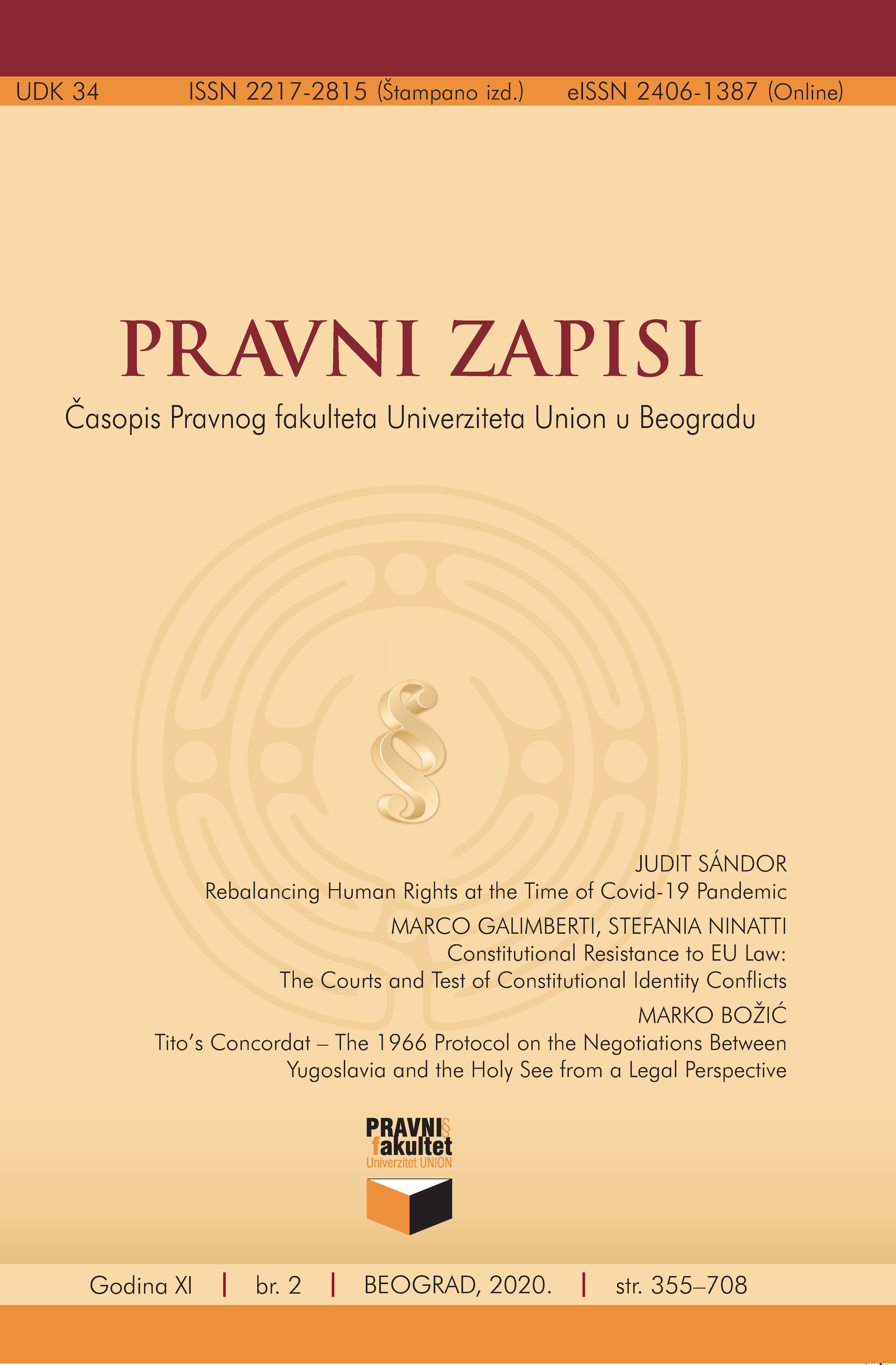Pravo na mirno uživanje imovine i zaštitna mera oduzimanje gotovog novca u praksi Ustavnog suda Srbije izvesna neizvesnost
The Right to Peaceful Enjoyment of Property and the Security Measure of the Forfeiture of Cash in the Jurisprudence of the Serbian Constitutional Court: Certain Uncertainty
Author(s): Tamás KorheczSubject(s): Law, Constitution, Jurisprudence, Constitutional Law, Court case
Published by: Pravni fakultet Univerziteta Union
Keywords: right to peaceful enjoyment of property; protective measure – seizure of cash money; proportionality principle; Constitutional Court of the Republic of Serbia; European Union; ECHR
Summary/Abstract: The right to peaceful enjoyment of property is a first-generation human right, protected by the international and domestic law of the highest rank. This is not an absolute right – the European standards of protecting property rights allow possible interferences prescribed by law. The interferences can be made in the public interest but only under the assumption that the proportionality between the public interest and property rights of individuals at stake is established. Forfeiture of undeclared cash the individuals are transferring across state borders, together with imposing fines for a misdemeanor, represent an interference with individuals’ property rights. The EU Member States do not share an identical system of sanctions for this petty offense, but there is a tendency of unification related to the monitoring, registering, and sanctioning of undeclared, cross-border, individual cash transfer. The case-law of the European Court of Human Rights has established rather precise criteria for distinguishing permitted from unpermitted interferences in cases of undeclared cross-border cash transfers. The Serbian Constitutional Court has been faced with several constitutional complaints regarding alleged unconstitutionally of the imposed security measure amounting to the forfeiture of undeclared cash physically transferred across the state borders. The Constitutional Court has ruled inconsistently on the matter. Although it has regularly referred to the European Court of Human Rights’ relevant decisions, it fails to be consistent in following the Strasbourg Court’s rulings. In this article, the author has suggested that the legal certainty principle requires the Constitutional Court to consistently interpret the constitutional rights and be systematic in following Strasbourg. Only in this way, the Constitutional Court can help regular courts effectively to harmonize the interpretation and application of laws with the constitutional and international human rights standards regarding property rights.
Journal: Pravni zapisi
- Issue Year: 2020
- Issue No: 2
- Page Range: 620-644
- Page Count: 25
- Language: Serbian

